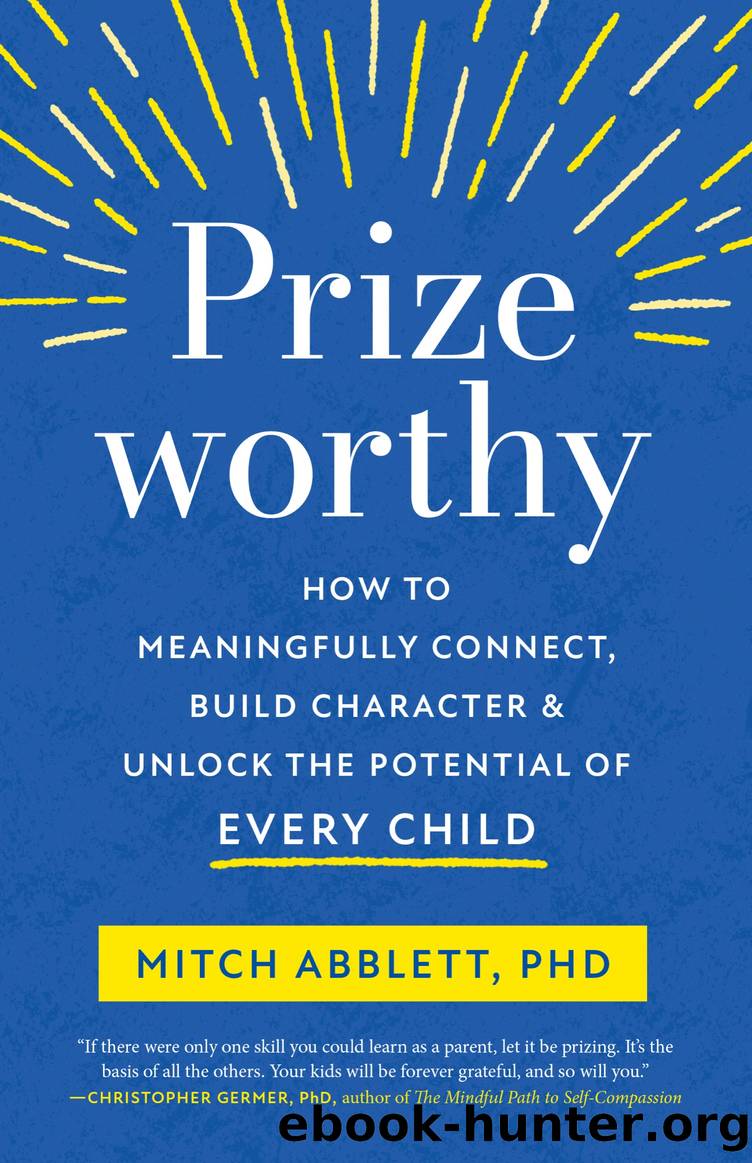Prizeworthy by Mitch Abblett

Author:Mitch Abblett [Abblett, Mitch]
Language: eng
Format: epub
Publisher: Shambhala
Published: 2021-10-05T00:00:00+00:00
How to Become a âTamerâ of Reactive Emotions
It was a particularly difficult day. My friendâs nine-month-old son had had a terrible night and left his parents with only a handful of hoursâ sleep. âNeedless to say, we were slow getting up and out the door that morning,â my friend told me over coffee. âBefore we left, my wife and I had a âdiscussionâ about who shouldâve gotten up during the night. We barely spoke in the car the rest of the way to work, after dropping the little dude off at day care.â
And then my friend had been hit by one issue after another after entering his office. There had been an important meeting he needed to chair, but he had forgotten to put it in his calendar. âAnd worst of all, I must have used a ladle to scoop sugar into my coffee travel mug that morning.â
I knew he needed me to listen, to simply validate what he had been going through. God knows I had been there myself. I knew not to shift into âtherapist modeâ and suggest how he could have gotten on top of his upsetâunless I wanted to shorten my friend list!
For readers of this book, however, I offer the relevant therapeutic ânuggetâ for situations like my friendâs: when strong parental emotion is surging, try to bring mindfulness into the picture. It can help to âname itâ (or as Iâve heard the psychiatrist and mindfulness expert Dan Siegel say, âName it to tame itâ).
The idea here is to say to yourself (and say out loud if the situation permits) what negative emotion you are experiencing, as you are experiencing it, in order to begin getting some distance on it. Somehow, as the clinical wisdom goes, simply labeling a difficult emotional experience allows you to take the reins back, if only briefly.
Research backs up the idea that mere verbal labeling of negative emotions can help people recover control. Matthew Lieberman at the University of California, Los Angeles, refers to this as affect labeling, and his fMRI brain-scan research shows that this labeling of emotion appears to decrease activity in brain centers such as the amygdala. This dampening of the emotional brain allows the brainâs frontal lobe (the reasoning and thinking center) to have greater sway over solving the problem du jour.
And this is where mindfulness comes in. Mindfulness gives us that one second of space as reactive emotions (like anger) are rising. If we can see the anger, then we do not have to be itâwe can mindfully notice the body and mind crackling with reactivity and acknowledge (or name) our emotions as we are having them. This naming seems to put the emotions at armâs length. We can see them, and then we can begin to choose how to act. We can choose to open ourselves and connect with others, rather than be carried away in a flood of emotional neurochemicals that wash us over the cliff. We might also learn about the other painful feelings our initial negative emotional reaction (anger in particular) might be covering up.
Download
This site does not store any files on its server. We only index and link to content provided by other sites. Please contact the content providers to delete copyright contents if any and email us, we'll remove relevant links or contents immediately.
Spare by Prince Harry The Duke of Sussex(5174)
Navigation and Map Reading by K Andrew(5150)
Tuesdays with Morrie by Mitch Albom(4768)
Machine Learning at Scale with H2O by Gregory Keys | David Whiting(4292)
Cracking the GRE Premium Edition with 6 Practice Tests, 2015 (Graduate School Test Preparation) by Princeton Review(4277)
Never by Ken Follett(3937)
Goodbye Paradise(3798)
What It Really Takes to Get Into Ivy League and Other Highly Selective Colleges by Hughes Chuck(3744)
Fairy Tale by Stephen King(3370)
Harry Potter and the Prisoner of Azkaban (Book 3) by J. K. Rowling(3346)
Pledged by Alexandra Robbins(3170)
Kick Ass in College: Highest Rated "How to Study in College" Book | 77 Ninja Study Skills Tips and Career Strategies | Motivational for College Students: A Guerrilla Guide to College Success by Fox Gunnar(3116)
Reminders of Him: A Novel by Colleen Hoover(3091)
A Dictionary of Sociology by Unknown(3073)
Sapiens and Homo Deus by Yuval Noah Harari(3063)
The Social Psychology of Inequality by Unknown(3018)
Graduate Admissions Essays, Fourth Edition: Write Your Way into the Graduate School of Your Choice (Graduate Admissions Essays: Write Your Way Into the) by Asher Donald(2907)
Will by Will Smith(2907)
Zero to Make by David Lang(2777)
